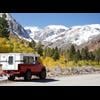
#11

Posted 20 March 2023 - 08:26 PM
Patrick
2015 FWC Hawk Flatbed
#12

Posted 20 March 2023 - 08:53 PM
Gumbus, have you tried having FWC repair this on warranty? Since you followed the prescribed method for winterization, and the manifold is a known failure point, it’s certainly not going to hurt to ask. Reach out to Stan Kennedy (Stan@FourWheel) with a PM to see if he can help.
I am haunted by waters
#13

Posted 30 March 2023 - 02:50 PM
Hello all, I have a 2020 FWC Grandby front Dinette and had a leak in the manifolds last spring. This camper is my third popup, second Granby. I had no problems with my first Grandby but the water system was completely different.
The manifolds that were installed in the 2020 are Zurn 1″ diameter Polysulfone QuickPort Manifold with Brass end caps. The leaks were at the seam starting in the treads, which seemed to be an odd place for a crack to form. I always winterize my campers by draining all water including hot water tank, opening up the facet and using low pressure air to blow out the lines.
So long story short I measured the diameter of the manifolds and end caps (both inside and outside) and placed both in a freezer and froze them to 0 degrees F, what I found was that the Polysulfone manifold had very little change in size but the brass end caps had a fairly large change in size, contracted in size because of the cold, I believe that this brass fitting contracting in size caused the crack to form. I have replaced the manifolds and end caps using like material (Polysulfone) used it all summer and fall with no leaks, I haven't filled the camper water system yet (still freezing here in Northern Nevada) but am hoping for no leaks this spring (if it ever gets here). KT
#14

Posted 30 March 2023 - 06:08 PM
Brings to mind the phrase "Cold enough to freeze the b@lls off a brass monkey"
Brass monkey (colloquialism) - Wikipedia
2012 ATC Puma Shell build - https://www.wanderth...012-puma-build/
Power considerations thread - https://www.wanderth...e-power-scotty/
Building out an electrical system - So, you want to setup a good electrical system in your camper? - Electrical, Charging, Solar, Batteries and Generators - Wander the West
#15

Posted 30 March 2023 - 11:30 PM
that was a good idea testing the brass end caps and kudos to Vic for the appropriate comment!
2005 Tundra 2013 Ocelot "Ridiculously comfortable"
2021 Tundra 2022 Cougar Shell Built Out "Even more ridiculously comfortable"
#16

Posted 31 March 2023 - 03:04 AM
Also, may have been mentioned, but you cannot drain or purge all the water out of our '16 Hawk 6 gallon hot water heater..some water will remain.... 3/4 gallon?
#17

Posted 05 May 2023 - 09:10 PM
I have a 2021 Hawk with front dinette and I’m trying to replace a cracked plumbing manifold. I have the part and am trying to remove the front cabinet panel to gain access to the manifold. I have removed all of the fasteners I can see and the forward section and upper rear of the panel is loose. However, the rear bottom of the panel seems firmly attached to the floor. Have I missed a hidden fastener? Any advice would be greatly appreciated. Thanks!
#18

Posted 06 May 2023 - 12:17 AM
I have a 2021 Hawk with front dinette and I’m trying to replace a cracked plumbing manifold. I have the part and am trying to remove the front cabinet panel to gain access to the manifold. I have removed all of the fasteners I can see and the forward section and upper rear of the panel is loose. However, the rear bottom of the panel seems firmly attached to the floor. Have I missed a hidden fastener? Any advice would be greatly appreciated. Thanks!
See my post in your other thread about the battery compartment sealant.
Jon R
2021 Grandby Slide-in Front Dinette
2021 GMC 3500HD CC LB SRW Gas
1993 Chevrolet K2500 Ext Cab LB
#19

Posted 08 May 2023 - 11:37 PM
Hey Smoke! did you get it fixed?
I am currently sitting in beautiful Sand Hollow State park in Hurricane UT and its my first trip out this spring after a numbing, record setting, winter in Park City. Sure enough I didn't add antifreeze or blow my lines out and both 90 degree plastic elbows to my shower under my sink cracked. After a trip to Home Depot I replaced them with brass fitting and I thought I had the bugger fixed and was dreaming of a nice hot shower....
Instead I see the black manifold positively spraying water hither and thither from behind the water pump. and the back of my camper spawning a water fall off my rear bumper.
So instead of a shower I am using wet wipes, c'est la vie. The camper life is glamourous.
Anyways, want to know how doable it is removing this front panel to get into that sucker. It looks... daunting. All the facades (thermostat, AC/DC power, furnace, hot water pump) must come off I am assuming?
Hoping y'all got out there and yes, I shall endeavor to antifreeze and blow out my lines moving forward.
#20

Posted 09 May 2023 - 12:18 AM
Some people may not know the following which is offered to stimulate thinking before replacing stuff:
All materials (metals, plastics, glass, adhesives, paint, etc) have characteristic thermal (and structural) properties. The properties vary from specific material to specific material (i.e. not all plastics are the same, not all metals are the same, not all adhesives are the same). Sometimes the differences are significant. However, assuming good manufacturing control, the properties of all parts made of the same specific material will have essentially the same thermal and structural properties.
The importance of this is that over a varying temperature all parts of the same specific material will expand and contract at a similar rate minimizing stresses on interfaces between parts. If a different material is introduced the differential thermal expansion or contraction of the materials can cause cracking and other issues.
In general, if you have a particular material in a plumbing system it is best to stay with that material and not mix materials, particularly when the system may see wide variation in temperature. If you decide to go with a different material for some reason, say copper, then replace all the components that will experience large temperature swings with the same material (copper in this case).
If you understand the material properties of all of the components as well as the temperature range then it is possible to engineer a system employing different materials for the various parts.
As some have reported, interfacing metal parts with plastic parts in a system that experiences wide temperature changes may result in failures.
I know this will come across as pedagogical and pedantic to some but I hope those who are not knowledgeable in these things will find it helpful.
Craig
Edited by ckent323, 14 May 2023 - 09:58 PM.
1993 Dodge Cummins W-250 Club Cab long bed, 2007 FWC Keystone
1 user(s) are reading this topic
0 members, 1 guests, 0 anonymous users

















